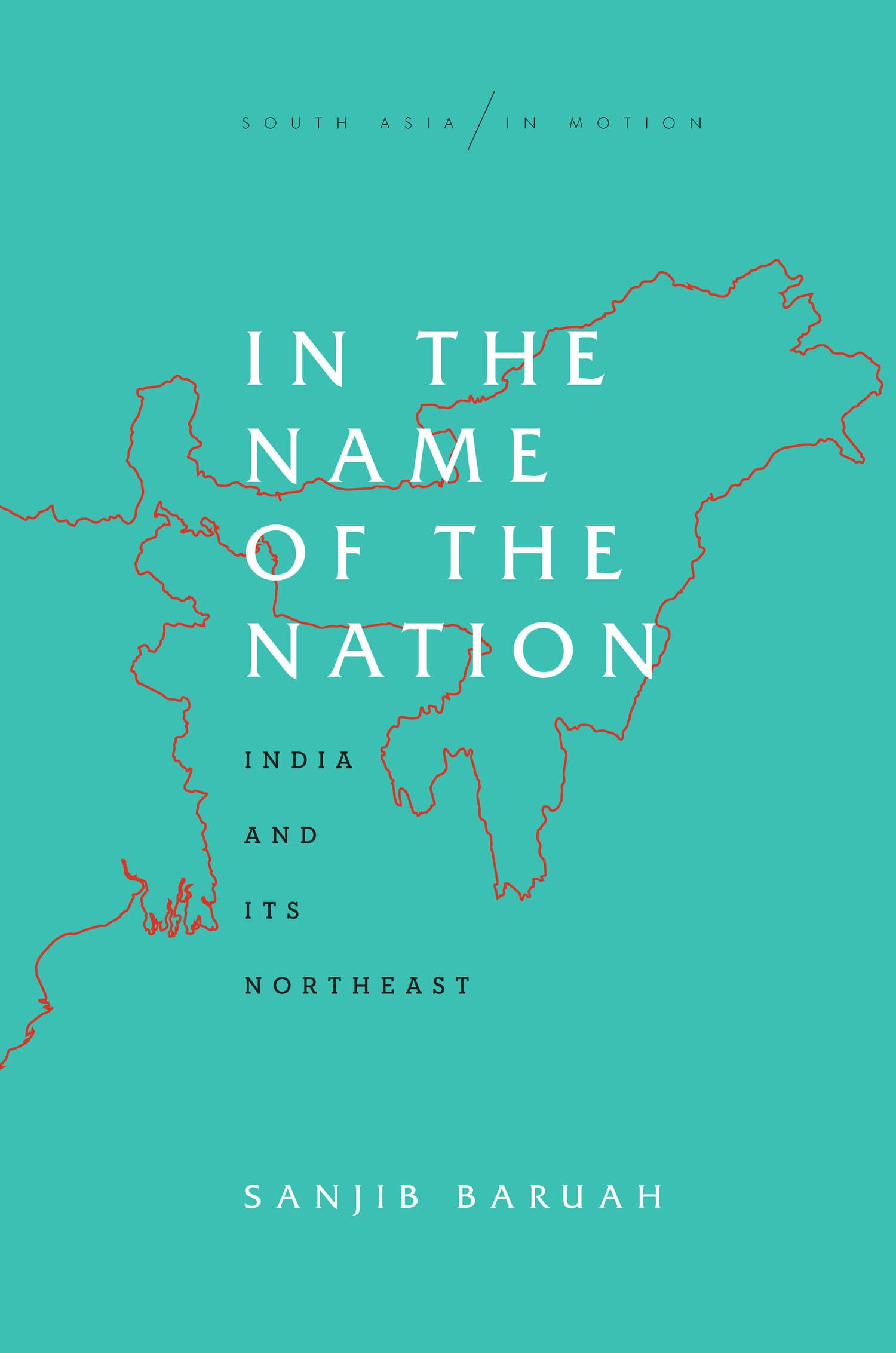In the Name of the Nation
Award Winner
2021: ICAS Book Prize
Winner of the Most Accessible and Captivating Work for the Non-Specialist Reader Accolade at the 2021 ICAS Book Prize, sponsored by the International Convention of Asia Scholars.

In India, the eight states that border Myanmar, Bangladesh, Bhutan and the Tibetan areas of China are often referred to as just "the Northeast." In the Name of the Nation offers a critical and historical account of the country's troubled relations with this borderland region. Its modern history is shaped by the dynamics of a "frontier" in its multiple references: migration and settlement, resource extraction, and regional geopolitics. Partly as a result of this, the political trajectory of the region has been different from the rest of the country. Ethnic militias and armed groups have flourished for decades, but they coexist comfortably with functioning electoral institutions. The region has some of India's highest voter turnout rates, but special security laws produce significant democracy deficits that are now almost as old as the Republic. That these policies have been enforced to foment national unity while multiple alternative conceptions of the "nation" animate politics in the region forces us to reflect on the very foundations of the nation form. Sanjib Baruah offers a nuanced account of this impossibly complicated story, asking how democracy can be sustained, and deepened, in these conditions.
"With In the Name of the Nation, Sanjib Baruah completes an impressive trilogy of books on India's Northeast. This book unravels the paradoxes of postcolonial life in the periphery of the nation-state with theoretical elegance, intimate knowledge, and political commitment. It is a wonderful read that sets a new standard for South Asian scholarship."—Bengt G. Karlsson, Stockholm University
"Elegantly written and cogent, Baruah's simultaneous 'insider-outsider' analysis of the region known generically as 'India's Northeast' is rich, nuanced, and multilayered. It captures the long-lasting impact of colonial policies and their present-day legacies, particularly in terms of how the 'center' and the 'peripheries' were imagined. A superb book for anyone wishing to understand how issues of citizenship, identity, and nation-making play out in the region today."—Urvashi Butalia, author of The Other Side of Silence: Voices from the Partition of India
"This is an important, accessibly written scholarly work that illuminates what democracy means by viewing it from the margins. A must-read for those interested in the contemporary politics of the Indian northeast and for those interested in the theory, history, and practice of democracy."—Kanchan Chandra, New York University
"Carefully composed in a highly readable style, this book is an important contribution to the study of democracy, nationalism and vernacular politics on the Indian subcontinent and beyond."—Ashild Kolas, Journal of Peace Research
"Baruah offers enormous insights into the causes of intensifying resistance, armed or otherwise, to harshly centralised political decision-making in India. The grasp of comparative politics that informs the author's analyses also contributes towards an understanding of increasing authoritarianism in South Asia and beyond."—Siddiq Wahid, India Today
"This survey of [northeastern India] is an excellent guide to its diversity and complexity and is characterized by a heartfelt criticism of the actions of the Indian government, guided by Baruah's scholarly authority and personal experiences. Highly recommended."—R. D. Long, CHOICE
"This is a rare gem of a book....While grappling with contentious issues of present politics, Sanjib Baruah provides depth, context and perspective."—Mahesh Rangarajan, The Indian Express
"This is a reflective book, borne out of several decades of engagement[It] can be read as a prescient ledger of how things came to pass in Northeast India."—Sanjay Barbora, The India Forum
"Baruah's intimate history and ethnography shows how neglect, corruption, uneven development, and repression—and recently the rise of Hindu nationalism at the federal level—have intensified the Northeast's alienation from the rest of the country."—Andrew J. Nathan, Foreign Affairs
"[This] deceptively slim volume condenses a lifetime of deep intellectual, scholarly and normative engagement with the Northeast into an erudite and insightful analysis. It is indispensable for anyone seeking to understand the violent and chequered career of postcolonial nationalism in India, and the complex details of the history and present of its Northeast."—Sankaran Krishna, South Asia
"[A] magnificent work of scholarship and is most timely....The author's main contribution lies in raising awareness about the issues faced by the Northeast and its people and in highlighting the need for alternative politics in the region. It is indispensable for social scientists interested in understanding the society and politics of the region and for policymakers dealing with the issues of Northeast India."—Ganeshdatta Poddar, Journal of Contemporary Asia
"In the Name of the Nationis a stellar exposure of the fractal nature of the relationship between India and its Northeast, one rich in insights for anyone seeking to understand not just contemporary India, but also the pitfalls of postcolonial, would-be nation-states. It will be read for a long time yet."—Berenice Guyot-Rechard, H-Net Reviews
"In the Name of the Nation is an essential read that helps us better understand how ordinary people can reclaim moral sovereignty in the face of state violence. In the process, Northeast India is reconceived as central, not peripheral, to the history of Indian territorial sovereignty." –Ahona Panda, The Indian Economic and Social History Review
"This monograph will be of particular interest to scholars of Asian political economy who wish to better understand the legacy of colonialism in postcolonial societies. The lucidity of the prose makes the monograph amenably suitable for general readership as well."—Tathagata Dutta, New Zealand Journal of Asian Studies
"Baruah's study offers rich information on northeast India. Although it devotes more space to the state of Assam, other states also find wide coverage. Through this study, the reader obtains a nuanced coverage of the political development of northeastern India. The author can be credited for contextualizing individual political developments in each of the states of the region into a pattern for the region."—Anindita Ghoshal, Pacific Affairs




